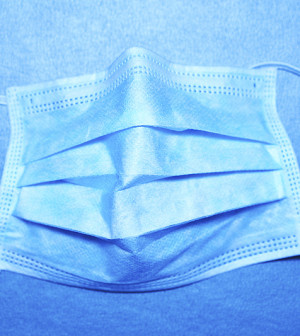- Could Artificial Sweeteners Be Aging the Brain Faster?
- Techniques for Soothing Your Nervous System
- Does the Water in Your House Smell Funny? Here’s Why
- Can a Daily Dose of Apple Cider Vinegar Actually Aid Weight Loss?
- 6 Health Beverages That Can Actually Spike Your Blood Sugar
- Treatment Options for Social Anxiety Disorder
- Understanding the Connection Between Anxiety and Depression
- How Daily Prunes Can Influence Cholesterol and Inflammation
- When to Take B12 for Better Absorption and Energy
- Epsom Salts: Health Benefits and Uses
Virus Mutation Explains Poor Performance of Last Season’s Flu Shot: Study


The 2014-15 flu vaccine was less effective than expected due to a new mutation in the flu virus, a new study shows.
The mutation in the H3N2 virus led to a mismatch between it and the H3N2 strain used to create the vaccine, the researchers explained. This meant that the vaccine did not fully prime the immune system to recognize and attack the version of the virus that circulated during the last flu season.
The findings were published June 25 in the journal Cell Reports.
Last season’s flu vaccine was less than 20 percent effective, compared with up to 60 percent effectiveness of other seasonal flu vaccines used in the past 10 years, according to the U.S. Centers for Disease Control and Prevention.
It was known that the 2014-15 vaccine was mismatched with most H3N2 strains circulating during the flu season, but this study is the first to pinpoint the mutation that caused the problem.
The finding will help in the development of future seasonal flu vaccines, according to the researchers.
“Flu vaccines work best when they are similar to most circulating flu strains,” study senior author Scott Hensley, of the Wistar Institute in Philadelphia, said in a journal news release.
“The World Health Organization recently recommended that a new H3N2 component should be incorporated into future formulations of seasonal flu vaccines. Our studies support this decision, since most circulating H3N2 strains are mismatched to the 2014-2015 vaccine strain,” he explained.
Hensley also urged people to continue getting annual flu shots.
“Most years, vaccine strains are well-matched to most circulating strains, and seasonal flu vaccines are usually more effective. The best way to prevent flu infection is by getting a flu vaccine,” he said.
More information
The U.S. Centers for Disease Control and Prevention has more about seasonal flu vaccination.
Source: HealthDay
Copyright © 2026 HealthDay. All rights reserved.










